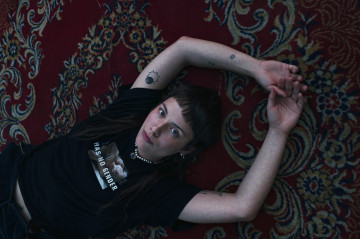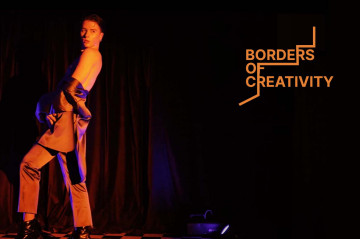
Researchers to Hold Gig to Study Coronavirus Transmissions. Volunteers Needed22.07.2020
For the experiment to succeed, researchers need to find 4,200 volunteers. Signups are still open.
Due to the continued ravages of the pandemic, the majority of large open-air, arena, and sporting events have been cancelled. To establish whether it is possible to establish a framework for how larger cultural and sports events could be held in our new reality and if so, under what rules, researchers from the Martin Luther University of Halle-Wittenberg decided to hold a concert that would double as a tightly controlled experiment.
The researchers have, somewhat clunkily, dubbed their project “Risk prEdiction of indoor SporT And cultuRe events for the Transmission of COVID-19” or RESTART-19 for short. Its primary objective is to trace the spread of the virus in large indoor venues. The researchers intend to examine the movement patterns of concertgoers and establish which surfaces they touch the most.
The experiment is scheduled to be held at the Quarterback Immobilien Arena in Leipzig, where popular German singer-songwriter will perform a simulated show for the assembled volunteers.
Rather than simply sell tickets for the event, the researchers drew up a detailed recruitment framework and sent out a call for healthy volunteers, aged 18 to 50. All the prospective participants will be tested for the coronavirus and those for whom the test will come back positive or inconclusive will be rejected. The concert is slated for August 22, but the attendees will be expected to spent the entire day at the venue—from 8am to 6pm. The event was designed for 4,200 attendees, but to date only around 1,000 volunteers have come forward.
“We are trying to find out if there could be a middle way between the old and the new normal that would allow organisers to fit enough people into a concert venue to not make a loss,” Stefan Moritz, RESTART-19 coordinator and the head of clinical infectious diseases at the University hospital in Halle, told The Guardian.
Attendees will be asked to play out two specific scenarios. In the first, they are to behave like they would have before the pandemic—after passing through the same two main doors, they will take their assigned seats. In the second scenario, they will enter through 8 separate entrances and always keep one seat free between them.
Furthermore, every attendee will be provided a fluorescent disinfectant that they will be asked to use throughout the show, allowing the researchers to monitor which of the venue surfaces are touched the most and thus where transmission is most likely to take place. Additionally, attendees will be fitted with face mask equipped with exhalation valves that they will have to wear throughout the event. Another important piece of equipment that will be distributed to every participant is a small contact tracer device that they will wear around their necks, which will collect data on individual movements, location in the venue, and proximity to other members of the audience at five-second intervals.
The experiment carries a €990,000 price tag, which is expected to be split between two of Germany’s federal states, Saxony and Saxony-Anhalt. The results of the project are scheduled to be unveiled later this October.
see also
- How Femtech is Capitalizing on Women

Trends
How Femtech is Capitalizing on Women
- What’s the Proper Way to Wash Your Hands? Foals Lend Song to Public Awareness Campaign
News
What’s the Proper Way to Wash Your Hands? Foals Lend Song to Public Awareness Campaign
- Creativity Without Limits. Another Series of Papaya Young Directors Stories Podcasts is Underway
 Papaya Young Directors
Papaya Young DirectorsNews
Creativity Without Limits. Another Series of Papaya Young Directors Stories Podcasts is Underway
- Voguing blends dance, expression, and protest. Here’s a first look at the Borders of Creativity series

People
Voguing blends dance, expression, and protest. Here’s a first look at the Borders of Creativity series
discover playlists
-
Teledyski
 15
15Teledyski
-
Nowe utwory z pierwszej 10 Billboard Hot 100 (II kwartał 2019 r.)
 15
15Nowe utwory z pierwszej 10 Billboard Hot 100 (II kwartał 2019 r.)
-
Seria archiwalnych koncertów Metalliki
 07
07Seria archiwalnych koncertów Metalliki
-
Papaya Young Directors top 15
 15
15Papaya Young Directors top 15
